Frequently Asked Questions
NightDriveSafaris specialises in organising small group, guided tours with the best night drives across South Africa.

FAQ's
A safari tour is an excursion, typically conducted in natural habitats like national parks or game reserves, where participants have the opportunity to observe wildlife.
No, NightDriveSafari tours are guided tours and self-drive is optional from Cape Town airport or hotel to the selected destinations. All transportation and fuel are included in the price. NightDriveSafaris has the operating license required to transport tourists to our selected destinations.
Yes, the tour guide will also be your driver accompanying the guests on route to the destinations.
No, guests have the option of either self-catering or restaurant meals for each meal. All the destinations we have selected have restaurants with a variety of reasonably priced meals. Guests will have some time to buy supplies at their own expense at a local grocery store if they choose to self-cater.
We use a mix of national park chalets and private nature reserve chalets. All of the accommodation includes small kitchen, own WC with shower, air-conditioning, double or twin beds.
No, all transportation and fuel is included.
Yes, ultimately this is your choice but a comprehensive travel insurance is recommended.
The ‘Shy 5' include Aardvark, Aardwolf, Bat-Eared fox, Porcupine and Black-Footed cat.
The wildlife our guests will encounter depends on the location of the safari. In our selected destination we have a good chance of seeing the elusive species including the ‘Shy 5’ as mentioned on our home page. Some destinations are known for Aardvark while others are better known for Aardwolf. In other locations there is a chance of ‘big 5’ sightings and other sightings including lion, buffalo, leopard, elephant, giraffe, zebra, cheetah, crocodile, and various species of antelope and birds.
Safari tours can vary in duration, ranging from 7 – 10 nights. Day safaris typically last around 3 hours, while night safaris usually last only 2-3 hours, depending on the sightings.
Essential items include sunscreen, a hat, sunglasses, insect repellent, comfortable clothing in neutral colours, sturdy walking shoes, a camera or binoculars, and any necessary medications. It's also advisable to bring a refillable water bottle and a small backpack. We also recommend your own torch but we have extra available. Warm clothes for winter, including gloves and beanies.
Our guests' safety is our number 1 priority. Safaris are generally safe, and we prioritise visitor safety and follow established guidelines. However, it's essential to follow the instructions of your guide and adhere to safety protocols, especially when encountering wild animals.
The best time for a safari depends on factors such as weather, animal migrations, and personal preferences. Peak safari seasons typically coincide with the dry seasons when wildlife congregates around water sources, but each destination may have its own optimal time.
It's essential to consult with a healthcare professional or travel clinic before embarking on a safari to determine if any vaccinations or medications are recommended based on the destination and personal health history. The areas we will be visiting are malaria-free.
Yes with adult supervision. However, the minimum age requirement is 14 years and specific guidelines may vary depending on the tour operator and destination.
Accommodation options we use are typically comfortable chalets, usually with small kitchen own bathroom and air-conditioning. If you would like to receive more details please enquire.
Consider factors such as budget, preferred destination, duration, type of accommodation, wildlife sightings, and activities offered. Research reputable tour operators, read reviews, and ask for recommendations from friends or travel experts to make an informed decision.
South Africa has a diverse climate due to its varied geography, which includes coastal plains, mountain ranges, and semi-arid regions. Here's an overview of the general weather patterns in South Africa:
Summer (December to February):
Summer is characterised by warm to hot temperatures and occasional rainfall, especially in the eastern and coastal regions. Temperatures can range from mild to very hot, with coastal areas experiencing more moderate temperatures due to sea breezes. Inland regions, particularly in the north and northeast, can be extremely hot.
Autumn (March to May):
Autumn sees a gradual decrease in temperatures, and rainfall decreases in most regions. However, the Western Cape region may experience some rainfall during this time. Weather conditions are generally pleasant, with warm days and cooler evenings.
Winter (June to August):
Winter brings cooler temperatures across most of the country, with frost possible in inland areas and higher elevations. Coastal regions experience milder temperatures, and rainfall is minimal in most areas. The Western Cape may experience more significant rainfall during this season.
Spring (September to November):
Spring is characterised by mild temperatures and increasing rainfall, particularly in the north eastern parts of the country. Temperatures begin to rise gradually, and the landscape becomes lush and green as vegetation blooms. It's a popular time for outdoor activities and wildlife viewing.
It's important to note that South Africa's climate can vary significantly depending in which area you are in. For example, the Western Cape has a Mediterranean climate with wet winters and dry summers, while the north eastern regions experience a subtropical climate with hot, humid summers and mild winters. Before traveling to South Africa, it's advisable to check the specific weather conditions for your destination and time of year to pack accordingly and plan your activities.



